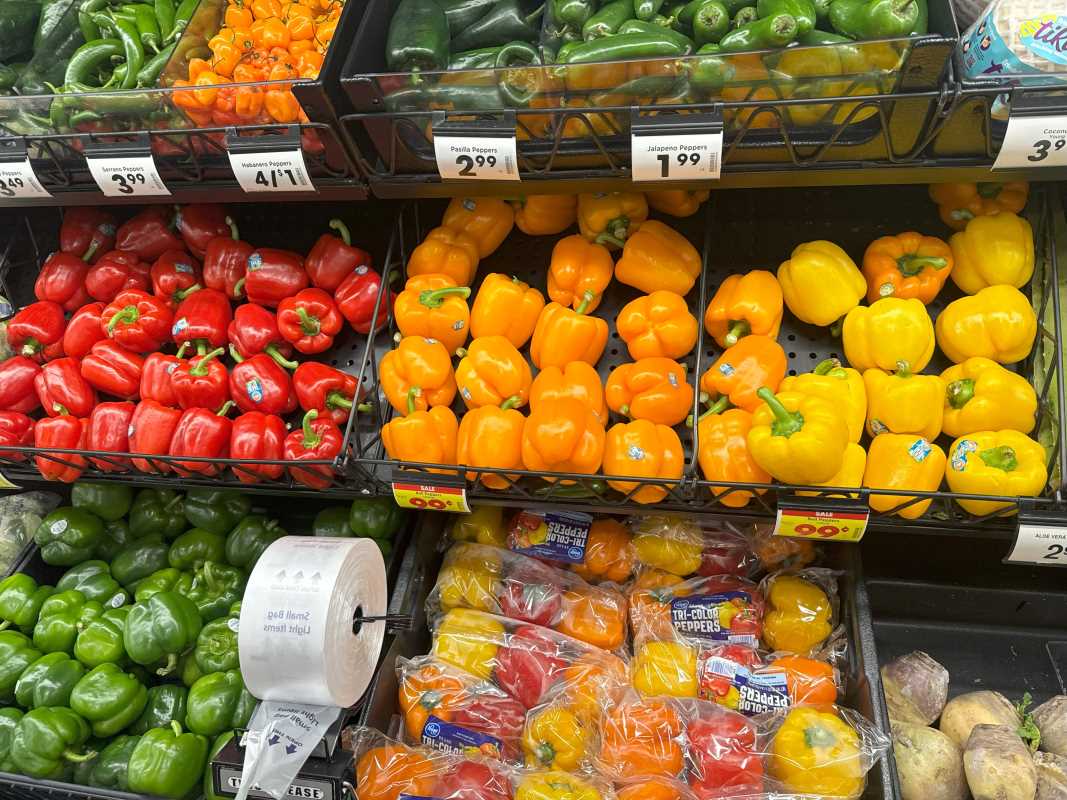The shift toward vegetarian and vegan diets is more than just a passing trend; it's a lifestyle choice gaining momentum worldwide. With a combination of growing health consciousness, environmental awareness, and ethical concerns about animal welfare, people are increasingly opting for plant-based diets. Embracing such a lifestyle not only has potential health benefits but also contributes positively to the environment. This article delves deeper into the advantages and considerations of adopting a vegetarian or vegan lifestyle, helping you understand why plant-based eating is becoming more popular—and whether it’s the right choice for you.
Understanding Plant-Based Diets
A plant-based diet, as the name suggests, focuses on foods derived from plants, including fruits, vegetables, nuts, seeds, oils, whole grains, legumes, and beans. While vegetarians exclude meat, fish, and poultry, they may still consume dairy products and eggs. Vegans, however, eliminate all animal products, including dairy, eggs, and even honey. While the terms "vegetarian" and "vegan" may seem similar, they represent different levels of restriction regarding animal products. The emphasis in a plant-based diet is on whole, minimally processed foods that are nutrient-dense and rich in fiber. For many, plant-based eating isn’t just about avoiding animal products—it’s about embracing a wide array of plant foods available. By focusing on fruits, vegetables, legumes, and grains, individuals are often exposed to various nutrients that they might not have previously consumed.
Health Benefits of Going Vegetarian or Vegan
Adopting a vegetarian or vegan diet can offer numerous health benefits, especially when the diet is well-balanced and includes a variety of plant foods.
- Improved Heart Health: One of the primary health benefits of a vegetarian or vegan diet is improved heart health. Plant-based diets are generally lower in saturated fats and cholesterol, typically found in animal products. Consuming more fruits, vegetables, nuts, seeds, and whole grains can lower your cholesterol levels and reduce your risk of heart disease. These foods are rich in antioxidants, phytochemicals, and healthy fats (such as omega-3 fatty acids from flaxseeds, walnuts, and chia), all contributing to lowering blood pressure and reducing inflammation. Research suggests that vegetarians and vegans tend to have lower rates of cardiovascular disease, including heart attacks and strokes, compared to those who follow omnivorous diets. This protective effect is likely due to a lower intake of animal fats and a higher intake of plant-based nutrients that support heart health.
- Weight Management: People who adopt vegetarian or vegan diets often have lower body mass indexes (BMIs) than their meat-eating counterparts. The high fiber content of plant-based foods helps promote feelings of fullness, reducing the likelihood of overeating. Additionally, the lower calorie density of fruits and vegetables can contribute to weight loss or maintenance without strict calorie counting. Plant-based foods are often less calorie-dense than their animal-based counterparts, meaning you can eat larger portions and still consume fewer calories. This makes it easier for individuals to maintain a healthy weight over the long term without feeling deprived.
- Lower Risk of Chronic Diseases: In addition to heart disease, vegetarian and vegan diets are linked to a lower risk of developing type 2 diabetes, certain cancers, and hypertension. The antioxidants, vitamins, and minerals found in fruits and vegetables provide protective effects against oxidative stress and inflammation, both contributing to chronic diseases.
- Type 2 diabetes: Studies show that plant-based diets can improve insulin sensitivity and reduce the risk of developing type 2 diabetes. A diet rich in whole grains, legumes, and vegetables helps maintain stable blood sugar levels.
- Cancer: Research suggests that diets high in fruits, vegetables, and legumes are associated with a reduced risk of certain types of cancer, including colorectal, breast, and prostate cancer. Phytochemicals like flavonoids and carotenoids found in plant foods have been shown to have anti-cancer properties.
- Better Digestive Health: The high fiber content of plant-based diets also supports a healthy digestive system. Fiber helps to promote regular bowel movements and can reduce the risk of constipation, hemorrhoids, and diverticulosis. Additionally, fiber acts as a prebiotic, feeding the beneficial bacteria in the gut and supporting a healthy microbiome. By reducing the intake of processed foods and incorporating more whole foods, vegetarians and vegans can experience improved gut health, leading to better digestion and a reduced risk of gastrointestinal issues.
Environmental Impact of Plant-Based Eating
Switching to a plant-based diet can significantly reduce your environmental footprint. As awareness of the environmental impact of food production grows, many people are turning to vegetarian and vegan diets to help mitigate climate change and reduce their ecological impact.
- Reduced Carbon Emissions: The production of plant-based foods generally results in lower greenhouse gas emissions than the meat industry. Livestock farming—especially beef and lamb—produces large amounts of methane, a potent greenhouse gas that is far more effective at trapping heat in the atmosphere than carbon dioxide. Reducing or eliminating animal products from your diet can help reduce the demand for livestock farming, thereby decreasing methane emissions and contributing to climate change mitigation. Research has shown that a plant-based diet can lower individual carbon footprints by up to 50% compared to an omnivorous diet. For example, producing a pound of beef emits far more CO2-equivalents than producing the same weight in beans, tofu, or grains.
- Conservation of Water Resources: Meat production is incredibly water-intensive. For instance, producing just one pound of beef can require up to 1,800 gallons of water, compared to just 25 gallons for a pound of wheat. This vast difference in water usage is due to the resources required to grow feed for livestock and the water used in the animals' maintenance and slaughtering processes. You significantly reduce the strain on global freshwater resources by choosing plant-based foods. Reducing meat consumption, especially beef and pork, helps conserve precious water resources for agricultural and human consumption.
- Biodiversity Preservation: A shift towards plant-based diets can also play a role in preserving biodiversity. Livestock farming requires vast amounts of land for grazing and feed crops, leading to deforestation and the destruction of natural habitats. By reducing the demand for animal products, we can help reduce deforestation and the loss of biodiversity, allowing forests and natural ecosystems to thrive. By adopting a plant-based diet, individuals can contribute to sustainable agriculture practices that are less harmful to wildlife and help preserve the planet’s biodiversity.
Challenges and How to Overcome Them
Transitioning to a vegetarian or vegan diet can present some challenges, but these obstacles are often surmountable with the right approach.
- Nutrient Deficiencies: A common concern with plant-based diets is the potential for nutrient deficiencies, especially in vitamins and minerals like B12, iron, calcium, and omega-3 fatty acids. However, these nutrients can be obtained from fortified foods or supplements. For example, vitamin B12 is found naturally only in animal products, but there are vegan supplements and fortified plant milks available. Similarly, iron can be found in plant sources such as lentils, beans, and spinach, but the absorption of non-heme iron (the type found in plants) can be enhanced by consuming it with vitamin C-rich foods.
- Social and Cultural Barriers: Social settings, such as family gatherings or dining out, can pose challenges when following a vegetarian or vegan diet. However, with a little preparation and creativity, bringing plant-based dishes to share or requesting modifications at restaurants is easy. As plant-based diets become more mainstream, many restaurants now offer vegan options, and hosting family meals with plant-based dishes is a great way to introduce others to the benefits of plant-based eating.
- Food Variety and Preparation: Initially, finding exciting and satisfying plant-based recipes can be challenging, especially if you're used to cooking with animal-based ingredients. The key is to explore different cuisines, such as Mediterranean, Indian, and Asian, which naturally incorporate many plant-based foods. Experimenting with new ingredients like tofu, tempeh, seitan, and plant-based meats can add variety to your meals.
Tips for Transitioning to a Plant-Based Diet
- Start Gradually: Begin by incorporating more plant-based meals into your week, such as trying "Meatless Mondays" or gradually reducing your meat consumption. Over time, the transition will feel more natural.
- Educate Yourself: Learn about the nutritional needs associated with plant-based diets. Books, documentaries, and online resources can provide valuable information on how to meet your nutrient requirements.
- Plan Ahead: Meal planning can help you make sure you’re getting a balanced diet and avoid the temptation to fall back on processed foods or convenience meals.
- Find Support: Whether it’s through local vegetarian/vegan groups, online forums, or supportive friends and family, having a community can make the transition easier and more enjoyable.

.jpeg)





